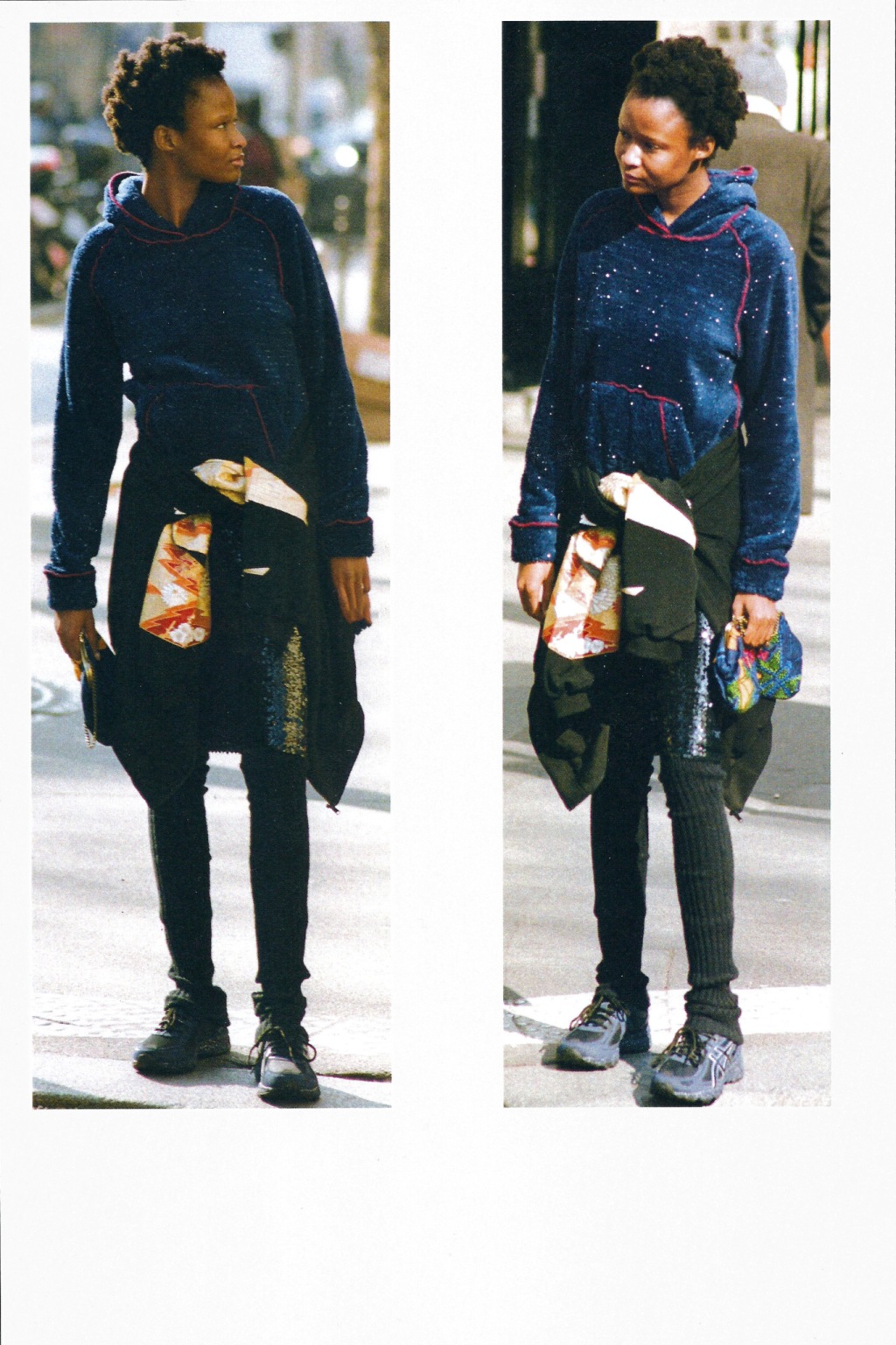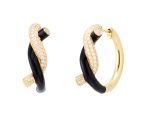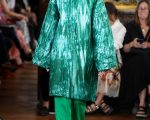
There was no dancing in the street — or indeed on the runway — this season for Xuly Bët. Lamine Badian Kouyaté’s label welcomed guests into his new studio and headquarters on the notoriously gritty Rue Saint Denis.
The designer relocated from the suburb of Ivry a matter of weeks ago, and the collection — made almost entirely with deadstock fabrics from the brand’s own archives and repurposed pieces from neighborhood vintage outlets — was put together in just three weeks.
“We wanted to regroup and regenerate,” said chief executive officer Rodrigo Martinez. The brand is in the midst of a fundraising round and is scaling back its wholesale activity, he said.
Badian Kouyaté’s signature red stitching was found on branded hoodies that were cut apart and spliced back together, while maxidresses were made from a multitude of NFL jerseys. Among statement pieces, a hat, scarf and mittens all-in-one was sewn together from hundreds of tiny pieces of fake fur in a range of colors. A fluffy fleece with glittering threads — the only fabric bought in for the collection — was used on a range of alternative basics from lounge pants and a pencil skirt to a sweatshirt with an elongated polo neck, a house signature in an eclectic yet distinctly identified lineup.
Juxtaposed with the sporty silhouettes — including a broader range of basics for men — were others with a Japanese feel. These came by way of a samouraï print designed by artist and choreographer Smaïl Kanouté, found on a long, A-line skirt and cropped jean-style jacket, or vintage kimonos created for Japan’s Keshiki Gallery, which aims to make the kimono a part of Japan’s street-style culture once more.
These, like other pieces in the collection, were emblazoned with the logo “Funkin’ Fashion Factory, 100% recycled.”
The collaborative effort did not stop there. Ever the fashion activist, Badian Kouyaté created a dress in support of Assa Traoré, whose brother Adama died in police custody in 2016 and who has become a voice for the fight against racial injustice in France.
She, as well as filmmaker Alice Diop and singer Flavia Coelho, posed for the look book images, shot in the streets outside the atelier, while campaign images feature Dutch model Marpessa Hennink, known in the ‘90s as the “Catwalk Contessa.”







